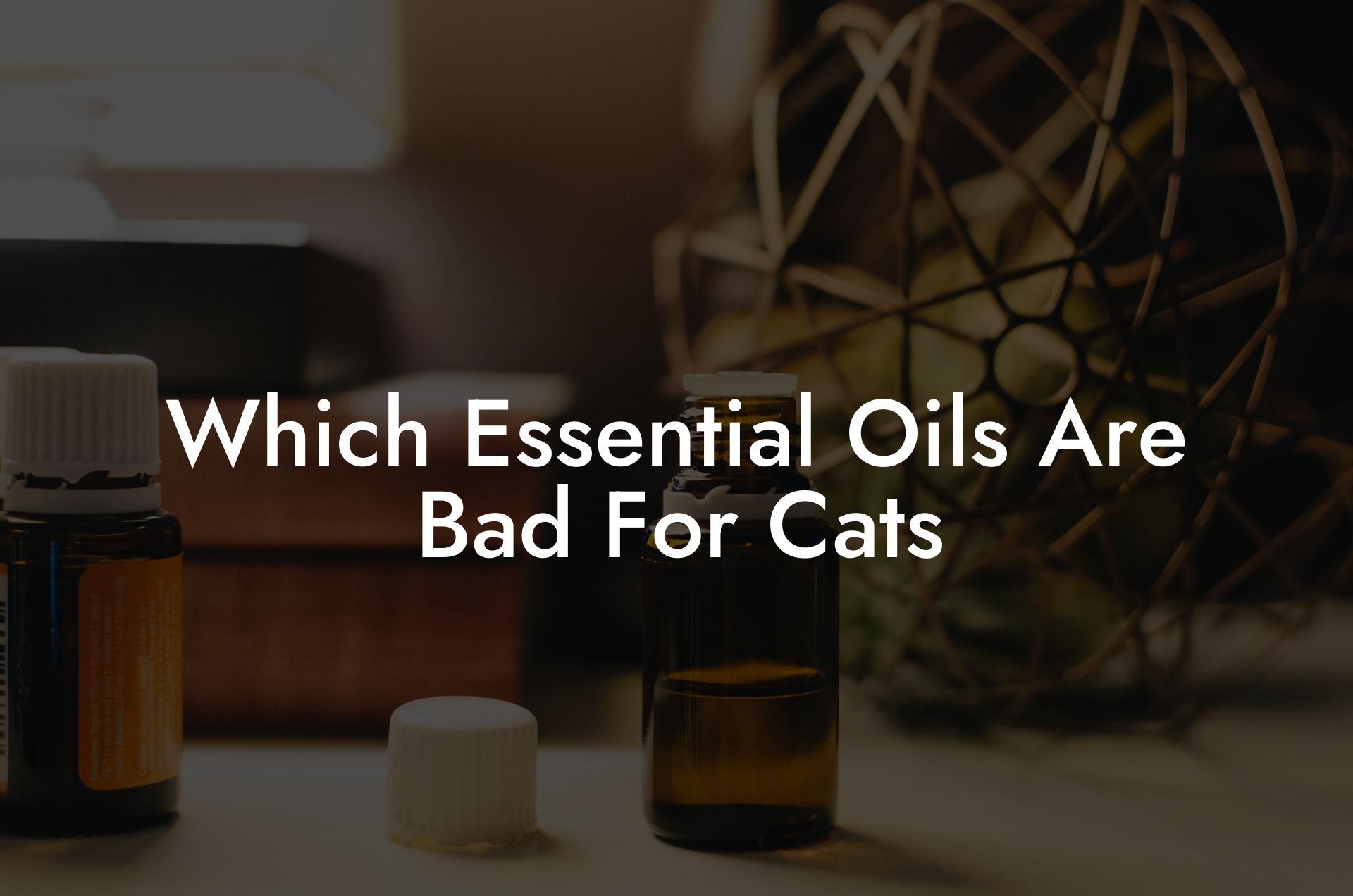For any cat lover who also happens to enjoy the benefits of essential oils, it is crucial to ensure that your furry friend stays safe while you indulge in your favorite scents. Some essential oils may pose health risks for your feline companion, so understanding the potential hazards is key to protecting your cat’s well-being. In this article, we will delve into which essential oils are bad for cats, the reasons behind their toxicity, and how to use essential oils responsibly in a household with cats.
Table of Contents
Why Are Some Essential Oils Toxic to Cats?
Cats have a unique liver enzyme, called Glutathione S-Transferase, that is limited in its ability to metabolize various compounds. This makes them more susceptible to toxins and substances that may not affect other animals. Essential oils, being highly concentrated in nature, may contain components that cats cannot properly metabolize. As a result, continuous exposure can cause health issues or even become life-threatening.
Essential Oils to Avoid Around Cats
Certain essential oils are known to be harmful to cats and should be avoided in homes with feline residents. Some of these oils include:
- Tea tree oil (Melaleuca alternifolia)
- Eucalyptus oil (Eucalyptus globulus)
- Bergamot (Citrus bergamia)
- Peppermint (Mentha piperita)
- Lemon and other citrus oils (Citrus limon, Citrus sinensis)
- Lavender (Lavandula angustifolia)
- Pine (Pinus sylvestris)
- Cinnamon (Cinnamomum zeylanicum)
- Clove (Syzygium aromaticum)
- Rosemary (Rosmarinus officinalis)
It is vital to note that this list is not exhaustive, and other essential oils may also be harmful to cats. Always consult with a veterinarian before using essential oils in your home if you are unsure of their safety.
Signs of Essential Oil Toxicity in Cats
Cats that have been exposed to toxic essential oils may exhibit various symptoms. If your cat comes into contact with any essential oil, look out for the following signs:
- Difficulty breathing or wheezing
- Drooling or vomiting
- Tremors or seizures
- Unsteady gait or loss of coordination
- Weakness or lethargy
- Red, irritated skin or burns
If you notice any of these symptoms in your cat, contact your veterinarian immediately. Ingesting toxic essential oils or continuous exposure to airborne toxins can lead to severe health complications.
Using Essential Oils Responsibly in a Household with Cats
While some essential oils may be unsafe for cats, it does not mean that you cannot use any essential oils at all. To use them responsibly, follow these guidelines:
- Ensure the essential oil is safe for cats (consult a veterinarian if unsure).
- Never apply undiluted essential oils directly onto your cat’s skin or fur.
- Use a water-based diffuser instead of heat, to reduce the concentration of oils in the air.
- Keep diffusers away from areas where your cat tends to lounge or sleep.
- Do not use essential oils around cats for prolonged periods.
- Keep essential oils in tightly sealed containers, out of your cat’s reach.
Which Essential Oils Are Bad For Cats Example:
Imagine one day, you decide to diffuse lemon essential oil to freshen up your home’s overall scent. Your cat, Luna, curiously approaches the diffuser and begins breathing in the lemon-infused air. A couple of hours later, Luna starts wheezing, and her breathing becomes labored. Worried, you take her to the veterinarian, who informs you about the potential harm of using citrus essential oils for cats.
No one wants to accidentally harm their beloved feline friend by using essential oils. By understanding which essential oils are bad for cats and taking responsible precautions, you can still enjoy the benefits of your favorite scents while ensuring your cat’s safety. Share this valuable information with other cat lovers and essential oil enthusiasts, explore other informative guides on Oshu Oils, and check out our range of essential oils to elevate your aromatherapy experience. Remember always to consult with your veterinarian when introducing essential oils into your cat-friendly household.





















